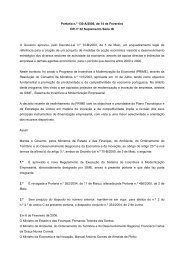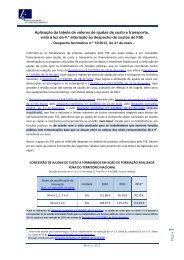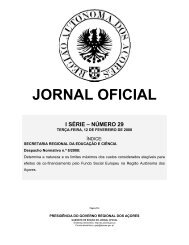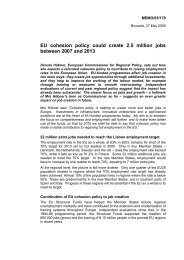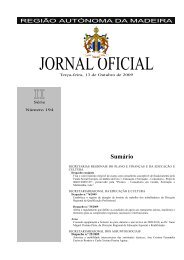Industrial Relations in Europe 2012 - European Commission - Europa
Industrial Relations in Europe 2012 - European Commission - Europa
Industrial Relations in Europe 2012 - European Commission - Europa
You also want an ePaper? Increase the reach of your titles
YUMPU automatically turns print PDFs into web optimized ePapers that Google loves.
Through the AGS the <strong>Commission</strong> has emphasised the need for modernis<strong>in</strong>g wage-sett<strong>in</strong>g systems,<br />
so that wage developments better reflect developments <strong>in</strong> labour productivity and competitiveness.<br />
This is a necessary condition to reduce unemployment and favour correction of large<br />
macroeconomic imbalances that have materialised <strong>in</strong> a number of <strong>Europe</strong>an countries. The role of<br />
social partners and collective barga<strong>in</strong><strong>in</strong>g has to be respected <strong>in</strong> the process. The <strong>Commission</strong> is<br />
engaged to promote and support social dialogue throughout the EU, while fully respect<strong>in</strong>g the<br />
autonomy of the social partners and the diversity of national systems of <strong>in</strong>dustrial relations.<br />
The Employment Package, presented <strong>in</strong> April <strong>2012</strong>, proposes to re<strong>in</strong>force the <strong>in</strong>volvement of the<br />
EU social partners <strong>in</strong> the <strong>Europe</strong>an Semester, together with the re<strong>in</strong>forcement of multilateral<br />
surveillance <strong>in</strong> the area of employment policies and a strengthen<strong>in</strong>g of the l<strong>in</strong>k between<br />
employment policies and relevant f<strong>in</strong>ancial <strong>in</strong>struments. Among other elements the <strong>Commission</strong><br />
has put forward plans for EU-level exchanges of views and monitor<strong>in</strong>g on wage developments. A<br />
first exchange with the social partners on wages developments at EU level took place at the end of<br />
January 2013.<br />
Flexicurity<br />
In May 2011 the <strong>Europe</strong>an social partners completed a jo<strong>in</strong>t study on The implementation of<br />
flexicurity and the role of the social partners, the ma<strong>in</strong> purpose of which was to “jo<strong>in</strong>tly monitor the<br />
implementation of the common pr<strong>in</strong>ciples of flexicurity, notably <strong>in</strong> order to evaluate the role and<br />
<strong>in</strong>volvement of the social partners <strong>in</strong> the process and to draw jo<strong>in</strong>t lessons.” A further aim was to<br />
promote greater trust and mutual understand<strong>in</strong>g among the social partners to facilitate the<br />
implementation of the flexicurity pr<strong>in</strong>ciples at national level. The project specifically exam<strong>in</strong>ed the<br />
impact of the crisis on the concept of flexicurity.<br />
Importantly, the study showed that if flexicurity is implemented <strong>in</strong> a balanced way, an<br />
overwhelm<strong>in</strong>g majority of employers and a certa<strong>in</strong> majority of trade unions believe that it has the<br />
potential to provide w<strong>in</strong>-w<strong>in</strong> situations. At the same time, however, the project <strong>in</strong>dicated that certa<strong>in</strong><br />
challenges rema<strong>in</strong>, and not only those caused by the 2008 global f<strong>in</strong>ancial and economic crisis. In<br />
particular, <strong>in</strong> countries where the past decade has been characterised by strong pressure towards a<br />
liberalisation of labour law regulations and more flexible forms of employment, it has proved very<br />
difficult for the social partners to develop a jo<strong>in</strong>t understand<strong>in</strong>g and common view on flexicurity.<br />
The study uncovered rather worry<strong>in</strong>g evidence from countries normally cited as models of<br />
flexicurity, namely the Netherlands and Denmark, where trade unions are concerned about negative<br />
effects of recent reforms and changes <strong>in</strong> the balance of flexibility and security <strong>in</strong> the labour market.<br />
The Dutch trade unions reject the concept of flexicurity and while the Danish trade unions are still<br />
conv<strong>in</strong>ced of the potential strength of this labour market model, they are concerned about the<br />
erosion of some of its major components.<br />
The major concern of trade unions <strong>in</strong> most countries is related to the imbalance of flexibility and<br />
security <strong>in</strong> today’s labour market, the polarisation between workers “<strong>in</strong>side” and at the “marg<strong>in</strong>s”,<br />
the <strong>in</strong>crease <strong>in</strong> precarious forms of work and other trends of labour market segmentation. In this<br />
context, both trade union representatives and employers have stressed the need to def<strong>in</strong>e “modern<br />
social protection rights” that reflect the challenges and risks <strong>in</strong> today’s labour markets. Mak<strong>in</strong>g the<br />
notion of flexicurity live for <strong>Europe</strong>’s small and micro bus<strong>in</strong>esses is also a major challenge that can<br />
270





